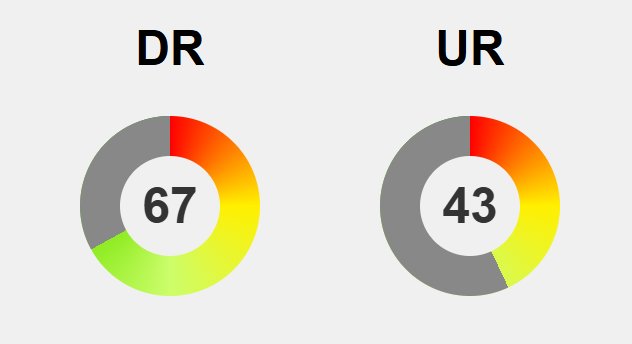Galileo Galilei’s revolutionary discoveries transformed our understanding of the universe, challenging centuries-old dogmas and laying the groundwork for modern science. His pioneering use of observation and experimentation, such as the telescope, uncovered a dynamic universe far more complex than previously believed, directly confronting the authority of religious and academic institutions. Yet, his relentless questioning and support for heliocentrism also made him a target, culminating in his trial and forced recantation. Was Galileo a hero of progress or a martyr who paid a personal price for truth? His story embodies the tension between tradition and innovation, obedience and independence, raising enduring questions about the cost of scientific advancement. Today, his legacy inspires ongoing pursuit of knowledge, moral courage, and resistance to oppression—reminding us that pushing the boundaries of understanding often requires daring defiance and unwavering conviction.
Galileo: Transforming Our Understanding of the Universe and Challenging Tradition
Galileo Galilei is remembered as a towering figure who transformed our understanding of the universe and reshaped the path of science itself. His innovative methods—focused on observation, experimentation, and evidence—challenged centuries-old ideas rooted in tradition and authority. Recognized as the “father of modern science,” Galileo’s insistence on questioning accepted wisdom laid the groundwork for a new approach to exploring the natural world that still influences us today.
Before Galileo’s time, science was largely based on ancient texts and religious teachings. The prevailing belief was geocentrism—Earth at the universe’s center—supported by Aristotle and Ptolemy. Knowledge was often accepted on authority, and the church wielded significant influence over what was considered true. This environment fostered a slow, dogmatic approach, where questioning established ideas was risky and sometimes dangerous.
Galileo’s use of the telescope revolutionized astronomy. His observations of Jupiter’s moons and the phases of Venus provided concrete evidence against the geocentric model. These discoveries expanded our view of space and directly challenged the authority of religious and academic institutions that defended traditional doctrines. By emphasizing empirical evidence, Galileo set a new standard for scientific inquiry—one rooted in curiosity and critical thinking.
His support for heliocentrism—placing the Sun at the center of the universe—brought him into direct conflict with the church’s teachings. Despite the risks, Galileo persisted in defending his findings, emphasizing that observation and evidence should guide understanding rather than dogma. His willingness to challenge authority made him a symbol of intellectual independence, inspiring future generations to seek truth beyond accepted beliefs.
Galileo’s influence extends beyond astronomy. His legacy embodies the spirit of questioning, resilience, and moral courage. His story reminds us that progress often involves standing firm against opposition, risking personal sacrifice to pursue knowledge. As a trailblazer who dared to challenge long-standing norms, Galileo’s life remains a powerful example of how curiosity and perseverance can reshape society’s understanding of the universe.
How Galileo’s Discoveries and Conflicts Shaped His Enduring Legacy
Galileo’s discoveries fundamentally altered our view of the cosmos and propelled science into a new era. His detailed observations of Jupiter’s moons and the phases of Venus provided irrefutable evidence that the long-held geocentric model—placing Earth at the universe’s center—was flawed. These findings revealed celestial movements that couldn’t be explained by traditional ideas, directly challenging centuries of accepted wisdom. The invention of the telescope, a relatively new tool at the time, allowed Galileo to peer into space in ways never before possible, opening a window to a universe far more complex than previously imagined.
What set Galileo apart was his emphasis on direct observation and experimentation rather than philosophical reasoning or reliance on ancient authorities. His meticulous studies proved that celestial bodies were not perfect spheres, as had been assumed for centuries. The moon’s rugged surface, for instance, contradicted the idea of perfect celestial spheres, revealing a universe that was dynamic and imperfect. These insights laid the groundwork for a scientific method grounded in evidence and critical thinking, shifting the focus away from dogma and toward inquiry.
However, Galileo’s willingness to challenge established ideas made him a target of suspicion and hostility, especially from those invested in maintaining the old order. His support for Copernican heliocentrism—where the Sun, not Earth, is at the center—directly conflicted with the teachings of the church. This wasn’t just a scientific debate; it became a clash of authority, with Galileo’s findings threatening the religious and philosophical foundations of the time. His insistence on evidence over doctrine put him at odds with powerful institutions, foreshadowing conflicts that would only intensify.
As Galileo’s ideas gained traction among other scientists, opposition from the church grew fierce. His advocacy for heliocentrism led to accusations of heresy and culminated in the infamous 1633 trial by the Inquisition. Despite being forced to recant, Galileo’s influence persisted, and his perseverance gradually shifted societal attitudes. His legacy underscores the importance of questioning authority and testing ideas, even when personal risks are high. His work helped ignite the scientific revolution, changing how humanity understood the universe forever.
Galileo’s groundbreaking discoveries and the conflicts they sparked shaped his enduring legacy. He demonstrated that evidence and observation could overturn long-standing beliefs, inspiring future generations to think independently. His story is a testament to the power of curiosity and resilience in the face of opposition. Through his relentless pursuit of truth, Galileo not only advanced science but also challenged the very foundations of authority, making him a symbol of intellectual courage and progress.
Galileo’s Influence Today: A Legacy of Inquiry, Courage, and Innovation
Today, Galileo’s contributions continue to resonate well beyond the realm of science. His pioneering observations, like the moons of Jupiter and the phases of Venus, form the backbone of modern astronomy and shape how we understand the universe today. His insistence on evidence and direct observation shifted science away from reliance on ancient texts and dogma, establishing a new standard that still guides research. Galileo’s approach serves as a symbol of intellectual courage, inspiring scientists to challenge assumptions and seek truth through inquiry.
His legacy is also reflected in the principles that underpin scientific investigation. The telescope he refined and used unlocked a universe far larger and more complex than previously imagined. Modern astronomers build on his methods—rigorous experimentation, critical thinking, and skepticism—applying them to explore distant planets, galaxies, and even quantum phenomena. These techniques, rooted in Galileo’s groundbreaking work, continue to drive scientific progress and innovation.
Culturally, Galileo stands as a powerful figure of perseverance and independence. His story often emerges in debates about science versus religion, highlighting the ongoing tension between faith-based beliefs and empirical evidence. Society recognizes him as a champion of free thought and discovery, emphasizing the importance of questioning authority. His life underscores that true progress often requires defying entrenched power structures and standing firm on facts.
Galileo’s influence extends beyond astronomy. His challenge to traditional authority reshaped how society views the relationship between science and culture, fostering an environment where ideas can be tested and refined without fear. This shift cultivated a culture of curiosity and skepticism—traits essential for continued innovation. Today, his example continues to inspire those who pursue knowledge despite obstacles and opposition.
Throughout history, Galileo’s conflict with religious authorities exemplifies the broader struggle between emerging scientific truths and established power. His unwavering stance in favor of evidence over dogma helped pave the way for a more secular and open approach to understanding the universe. His legacy reminds us that genuine progress often involves personal sacrifice, but that perseverance can ultimately lead to societal transformation.
In modern times, Galileo’s story is a testament to the importance of moral courage in scientific pursuit. His refusal to capitulate under pressure highlights the value of integrity and resilience. As new discoveries challenge old beliefs and societal norms, his example encourages scientists and thinkers to stand by evidence, pushing forward with curiosity and conviction. His enduring influence inspires us to keep questioning and exploring, no matter the obstacles.
Ultimately, Galileo’s legacy as a pioneer and a symbol of defiance continues to shape our worldview. His life and work exemplify how curiosity, perseverance, and moral resolve can change the course of history. As we look to the future, his story reminds us that progress depends on daring to challenge the status quo—an inspiring call to stay curious, question authority, and pursue truth with unwavering resolve.
Building on Galileo’s legacy of curiosity and exploration, many contemporary scientists and enthusiasts continue to seek new frontiers in understanding our universe. For those interested in the origins of modern astronomy and the tools that made such discoveries possible, exploring the history of the telescope provides valuable insights. To learn more about the evolution of astronomical instruments and how they shape current research, visit the history of telescopes.
Galileo as a Martyr of Progress: A Symbol of Resilience and Moral Courage
Galileo Galilei’s story extends beyond his scientific achievements; it elevates him to the status of a symbol of resilience and moral conviction. His unwavering willingness to challenge the powerful authorities of his time turned him into a martyr for progress and intellectual freedom. Facing condemnation, exile, and censorship, Galileo refused to abandon his pursuit of truth, embodying the spirit that progress often demands personal sacrifice.
His defiance against the church’s teachings, despite the peril it posed to his life and reputation, transformed him into a lasting icon of moral courage. Galileo’s support for heliocentrism—the idea that the Sun, not Earth, is at the center of the universe—directly threatened the church’s authority over cosmological doctrine. His trial in 1633, where he was forced to recant, did little to diminish his influence; instead, it cemented his role as a hero who stood firm against oppressive dogma.
Galileo’s resilience in the face of severe opposition exemplifies the idea that challenging entrenched beliefs can come at a steep personal cost. Yet, his refusal to capitulate laid the groundwork for a new era of scientific independence. His story is a testament to the power of persistence—showing that moral conviction and unwavering commitment to truth can inspire future generations to push boundaries, even under threat.
Throughout history, Galileo’s life has been woven into the larger narrative of resistance against suppression in the name of knowledge. His example underscores how standing up for facts and evidence, against institutional power, can spark societal change. His moral courage reminds us that the pursuit of truth often involves risking reputation, safety, and comfort, but that such risks are essential for true progress.
Galileo’s legacy as a martyr underscores the core values behind the scientific revolution: curiosity, perseverance, and integrity. His refusal to yield in the face of censorship made him an enduring symbol of intellectual independence. His life inspires scientists and thinkers to pursue discovery boldly, emphasizing that the moral act of defending truth can challenge authority and reshape society.
Today, Galileo remains a timeless icon of resistance against ignorance and oppression. His story encourages us to see truth and moral courage as intertwined, inspiring ongoing struggles for free inquiry and scientific integrity. His legacy reminds us that the pursuit of knowledge is not just a quest for facts but a moral act—one that can challenge power and change the course of history.
Looking Forward: Galileo’s Legacy Inspiring Future Science and Society
Galileo’s legacy continues to shape the future of science and culture, inspiring new generations to question, explore, and innovate. As technological capabilities advance—with more powerful telescopes, space missions, and data analysis tools—scientists build upon his pioneering spirit of empirical discovery. His example encourages researchers to push beyond current boundaries, delving into exoplanets, quantum phenomena, and the origins of the universe. The core principle he championed—relying on evidence—remains a guiding light in the ongoing quest for understanding.
Beyond the laboratory, Galileo’s story embodies the importance of intellectual independence and moral courage. His defiance of authority laid the groundwork for movements advocating scientific freedom and open inquiry. These principles continue to influence debates about transparency, integrity, and the importance of challenging established beliefs. His life reminds us that societal progress often hinges on the willingness to stand firm against resistance and to prioritize truth over comfort.
In a world increasingly affected by misinformation and skepticism, Galileo’s emphasis on evidence remains vital. His life exemplifies that questioning accepted ideas—whether in science, religion, or politics—can lead to revolutionary shifts in understanding. As society grapples with issues like climate change, technological ethics, and space exploration, his legacy urges us to maintain curiosity, skepticism, and resilience as essential tools for progress.
Looking ahead, Galileo’s influence is likely to inspire a new wave of thinkers who see science not just as a collection of facts but as a moral pursuit rooted in integrity and courage. The digital age offers unprecedented opportunities for collaboration and discovery, and his story underscores that daring to challenge the status quo is key to addressing global challenges. Embracing this mindset will be crucial for fostering innovation that benefits society and sustains progress.
Supporting Galileo’s enduring impact means cultivating environments that promote questioning, experimentation, and the free exchange of ideas. Education systems emphasizing critical thinking and curiosity help prepare future scientists and leaders to carry forward his legacy. Protecting scientific independence from political or ideological pressures is equally important, ensuring that evidence remains the foundation of decision-making.
As we venture into new frontiers—whether exploring distant worlds or unlocking the secrets of quantum physics—his example reminds us that progress depends on daring to challenge assumptions. His life encourages us to pursue knowledge boldly, even when faced with opposition. By doing so, we honor his memory and continue the vital work of expanding human understanding.
In embracing Galileo’s legacy, we recognize that true progress often involves resistance and resilience. His story inspires us to question, to stand firm, and to believe in the transformative power of evidence-driven inquiry. As the boundaries of science and culture expand, his example remains a powerful call to maintain curiosity, challenge authority, and seek truth with unwavering resolve.


